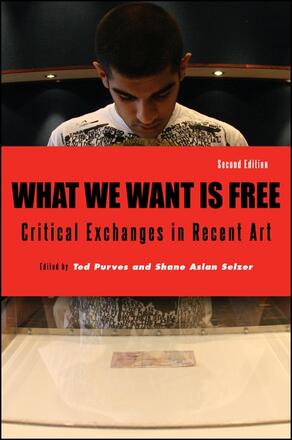
What We Want Is Free, Second Edition
Critical Exchanges in Recent Art
Alternative formats available from:
Explores how contemporary artists use gifts, barter, and other forms of nonmonetary exchange as a means and medium of artistic production.
Description
This revised edition of What We Want Is Free examines a twenty-year history of artistic productions that both model and occupy the various forms of exchange within contemporary society. From shops, gifts, and dinner parties to contract labor and petty theft, contemporary artists have used a variety of methods that both connect participants to tangible goods and services and, at the same time, offer critiques of and alternatives to global capitalism and other forms of social interaction. Examples of these various projects include the creation of free commuter bus lines and medicinal plant gardens, the distribution of such services as free housework or computer programming, and the production of community media projects such as free commuter newspapers and democratic low-wattage radio stations.
Like the first edition, the second edition includes a detailed survey of artists' projects from around the globe, as well as critical essays and artists' texts that explore the underlying social history and contemporary issues that further inform our reading of these works. This new edition also features a new introduction and additional chapters on the relation of exchange practices to democracy, the commons, object-oriented philosophy, and an examination of the impact of ongoing globalization on the economics of artists' projects. It also features a significantly expanded scope for the project histories, including work from the past decade and a new section dedicated to artist-initiated organizations and innovative models for new institutions.
Ted Purves is Associate Professor of Social Practice and Chair of the Graduate Program in Fine Arts at California College of the Arts. Shane Aslan Selzer is an artist, writer, and producer, who teaches at Parsons The New School for Design.
Reviews
Praise for the First Edition
"If you are an artist, read this book. No matter how you define and structure your practice, the essays within What We Want Is Free will lead you to consider important questions about how you work and what kind of life a project can lead. " — Nailed Magazine